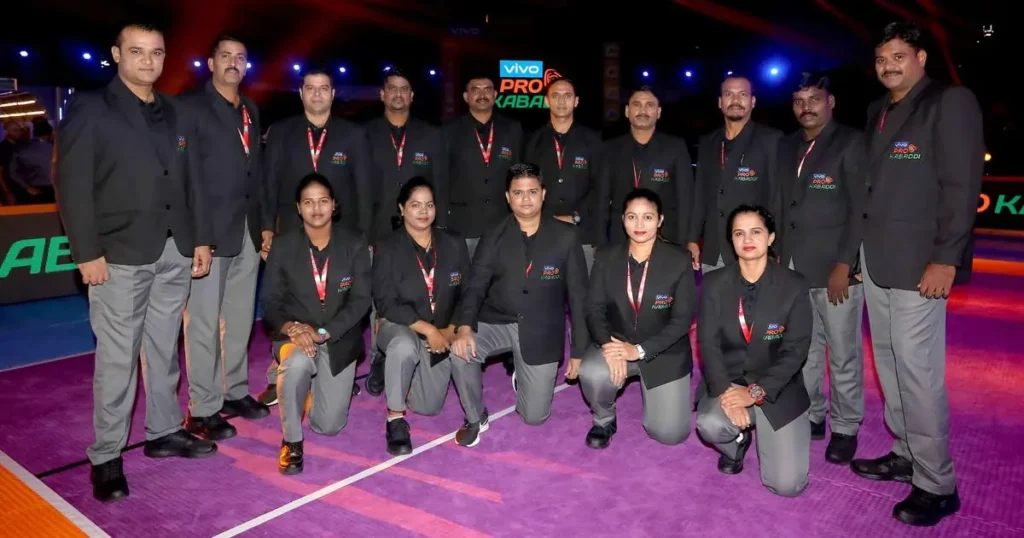Kabaddi, a sport with Indian connection from the very genes of our culture has found new life and rise to fame with professional leagues like Pro Kabaddi League (PKL) growing ever since. But as the sport gets bigger, so does the demand that good referees are in place to make sure easy compliance is done with these rules.
Here is a step by step instruction to become a kabaddi referee along with the list of skill, qualification and certification you need as a referee. If you’re looking to get involved in kabaddi but don’t know where to start, visit radheexch for more information and opportunities!
Understanding the Role of a Kabaddi Referee
Kabaddi, deeply embedded in Indian culture, has surged in popularity, particularly with the emergence of professional leagues such as the Pro Kabaddi League (PKL). As the sport grows, radheexch emphasizes the increasing need for skilled referees who can ensure fair play and adherence to the rules.
Becoming a kabaddi referee is a rewarding career for those passionate about the sport. This article provides a step-by-step guide on how to become a kabaddi referee, highlighting the necessary skills, qualifications, and pathways to certification.
Key Responsibilities:
- Rule Enforcement: Ensuring all players adhere to the official rules of kabaddi.
- Game Management: Controlling the pace of the game, starting and stopping play as necessary.
- Decision Making: Making quick and accurate decisions on fouls, points, and other critical aspects of the game.
- Conflict Resolution: Managing disputes between players and ensuring the game progresses smoothly.
A referee must maintain impartiality and fairness throughout the match, which requires a deep understanding of the game. They must also be agile to match the fast pace of kabaddi.
Essential Skills:
- Comprehensive Knowledge of Kabaddi Rules: A solid grasp of the game’s rules and regulations.
- Physical Endurance: The fitness level necessary to sustain the game’s rapid tempo.
- Communication Skills: Clearly and effectively communicating decisions to players and other officials.
- Attention to Detail: Noticing and correctly interpreting infractions during play.
These skills ensure that the referee can effectively manage the game and make accurate decisions. Consistent training and practice help in maintaining these skills.
Certification Programs and Courses
Several organizations provide certification programs and courses for aspiring kabaddi referees. Here are some notable ones.
Amateur Kabaddi Federation of India (AKFI):
- Course Details: The AKFI provides training programs and certification for referees, including updates on the latest rules and regulations.
- Certification: AKFI certification is essential for officiating in national-level tournaments.
- Workshops: Regular workshops are held to keep referees updated on any rule changes and best practices.
AKFI’s certification is recognized nationwide, making it essential for serious referees. The workshops provide continuous education and skill enhancement opportunities.
National Institute of Sports (NIS)
- Course Details: The NIS offers comprehensive courses for kabaddi referees, covering both theoretical and practical aspects.
- Certification: Successful completion of the course leads to certification, which is recognized nationally.
- Duration: Typically, these courses run for a few weeks, providing intensive training and education.
These courses also include practical sessions to enhance real-world skills.
Becoming a kabaddi referee requires dedication, in-depth knowledge of the game, and a commitment to continuous learning and improvement. By following the steps outlined in this guide and utilizing the resources available, aspiring referees can achieve their goals and contribute to the sport’s growth..
